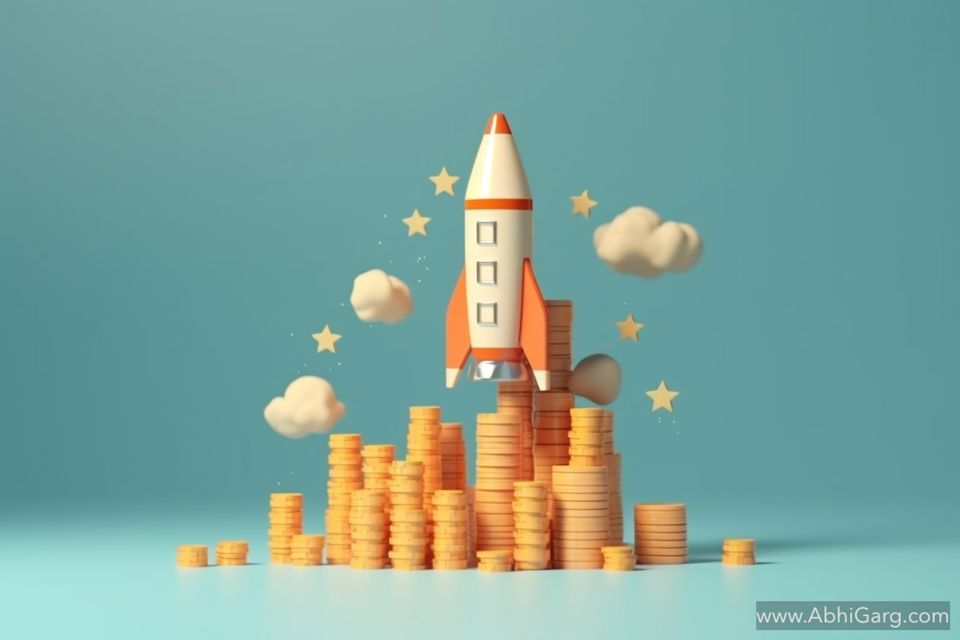What is startup valuation?

In the dynamic world of startups, the term 'valuation' holds a profound significance. Startup valuation, in simplest terms, is the process of determining the worth of a startup company. It is a key element in the startup ecosystem, often acting as a barometer to gauge potential investor interest, fundraising possibilities, and market competitiveness. However, measuring it and understanding its various facets can be pretty complex.
Measuring Startup Valuations
Unlike established companies with steady revenues and earnings, startups often lack a concrete financial history. Thus, conventional valuation methods such as Price-Earnings ratios or using comparables might not be suitable. The prevalent methods for startup valuation include Discounted Cash Flow (DCF) analysis, First Chicago Method, Berkus Method, the Risk Factor Summation Method, and more. These techniques incorporate quantitative (financials, market size, etc.) and qualitative (management team, competition, etc.) aspects.
The Risk and Reward Equation
Given the high risk associated with startups, it's intriguing why people invest in them. The answer lies in the potential for substantial returns. Startups, though risky, offer an opportunity to earn manifold returns if they become successful. The allure of being part of a groundbreaking idea and making significant gains upon its success is a strong motivator.
The Funding Rounds
Raising capital is a critical part of a startup's journey. It usually starts with a pre-seed or seed round where the entrepreneurs might invest their money or receive funds from friends, family, or angel investors. The primary goal at this stage is to validate the idea and build a minimum viable product (MVP).
Angel rounds typically involve affluent individuals or angel groups investing in exchange for equity. Series A, B, C, and onwards are usually larger rounds, with institutional investors such as venture capital firms coming into play. Each round corresponds to a different startup life cycle stage, from product development to scaling and expansion.
The Rise and Fall
So, why do most companies experience a crash from valuation highs to deep lows? Several reasons can contribute to this phenomenon - unsustainable growth, cash flow problems, regulatory hurdles, or macroeconomic factors. One notable example is WeWork, which saw its valuation plummet due to questionable governance and an unsustainable business model.





Success Stories
Looking back at the 2010s, some startups have transformed into global leaders. Uber, founded in 2009, revolutionized urban mobility and is valued at over $80 billion as of 2021. Airbnb, founded in 2008, challenged traditional lodging and is valued at nearly $82 billion (with the stock trading at USD 127 at the time of this writing).
Fiscal Discipline and Refunding Investor Money
Exercising fiscal discipline is a crucial factor in determining a startup's success. Bootstrapped companies, such as Mailchimp and Basecamp, provide good examples as they have been particularly cautious with their spending.
In certain circumstances, startups have returned the money to their investors. Buffer, a social media management tool, decided to buy out its investors and move forward as an entirely self-funded company.
What VCs Look for
Regarding investing, venture capitalists (VCs) seek startups with a unique value proposition, a large market size, and a solid founding team. They also assess product-market fit, traction, and potential exit strategies.
B2B vs B2C Valuations
Does the nature of the startup (B2B vs. B2C) affect its valuation?
The short answer is -- it can.
Enterprise software company Snowflake, a B2B startup, had a massive IPO in 2020, with a market cap of over $70 billion on its first day of trading. In contrast, B2C companies like Beyond Meat also saw a considerable increase in their valuation upon their IPO, showcasing the potential in both markets.
In conclusion, startup valuations are a complex yet fascinating business world aspect. Despite the high-risk nature, the potential for substantial returns and the opportunity to be a part of innovative ideas continue to attract investors.



